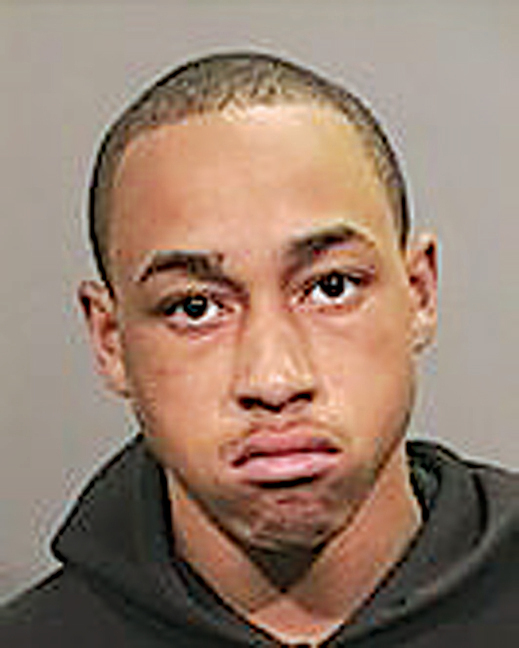Lacey ruled guilty for deadly N. Lawrence fire
Verdict reached on one year anniversary of tragedy
One year after a North Lawrence fire took the lives of a woman and three of her children, the victims' family members are still overcome with grief and anger. There was no mistaking their emotions on Feb. 19 — as it happened, the one-year anniversary of the blaze — after Caleb Lacey was convicted in Nassau County District Court in Mineola of setting the fire that changed the Vanegas family forever.
"I have a lot of pain," said the late Morena Vanegas's husband, Edit, after the jury's verdicts were announced. "Justice has been served."
Lacey, 20, who was a first-year probationary firefighter with the Lawrence-Cedarhurst Fire Department one year ago, was found guilty of multiple murder counts for setting the fire at a Lawrence Avenue apartment that killed 46-year-old Morena Vanegas, her 19-year-old son, Saul Preza, and daughters Susanna and Andrea Vanegas, 13 and 9. The guilty verdicts included felony murder, second-degree manslaughter, second-degree arson and reckless endangerment. Lacey was found not guilty of four counts of murder by depraved indifference and one count of first-degree reckless endangerment. He faces a maximum sentence of 25 years to life in prison at his sentencing, which is scheduled for April 9.
"I am very emotional," said Morena Vanegas's sister, Yolanda Lopez. "It is very difficult."
Edit Vanegas was so emotional when the verdicts were first announced that he raced out of the courtroom and dropped to the ground, sobbing. A family member helped him into a chair, calmed him down and assured him that Lacey would serve significant jail time. Earlier in the day, members of the Vanegas family had visited the burial sites of their lost loved ones at Greenfield Cemetery in Uniondale.
Morena Vanegas's older son, Jose Borjas, who was not at the apartment building the day of the fire, relived the tragic events of that day last Friday. He awoke at his Hempstead home at 5:20 a.m., he said, and immediately began thinking about how his family had been lost a year ago.
"I was retracing my steps of what I did last year," Borjas said. "[The guilty verdict] doesn't bring my family back, but at least we can try and move on with the rest of our lives."
As Lacey was about to be led away after the verdicts were read, he appeared to be making an attempt to escape and was tackled by police officers, creating chaos in and out of the courtroom. Edit Vanegas tried to charge back into the courtroom to confront Lacey before he was stopped by police and family members.
Lacey's parents and older brother strode out of the courtroom with tears in their eyes and did not speak to reporters. Lacey's father, the Rev. Richard Lacey of the Outreach Community Church in Inwood, did not return a call seeking comment earlier this week.
Lacey was accused of dousing the only stairwell in the two-story apartment building with gasoline, setting it afire and then driving to the firehouse, planning to be a hero by responding to the scene to put out the flames. During the trial, which lasted more than two weeks, county prosecutor Michael Canty argued that Lacey did not intend to kill anyone when he set the fire, but described the then 19-year-old as someone who was tired of being teased by friends for missing out on calls to big fires and wanted to be a hero. Canty also presented several videos showing what appeared to be Lacey's car at the scene of the fire moments before it happened.
Lacey's attorney, Chris Cassar, said he plans to appeal. "We will continue to do our investigation to prove that Caleb Lacey did not start this fire, because he didn't," Cassar said. "There was so much reasonable doubt, I don't know how 12 jurors could have come to the conclusion that there was no reasonable doubt."
In pre-trial proceedings, Judge Jerald Carter ruled that a videotape produced by police of Lacey confessing to the crime would not be shown to the jury because of its poor sound quality, and that Detective Carl Re, who elicited the confession, could not testify about it because he continued to question Lacey after the defendant had invoked his Fifth Amendment right to avoid self-incrimination.






